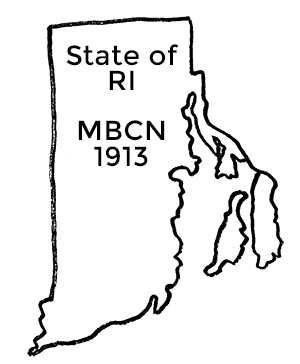Cookie Policy
We at Standard Modern (the “Company,” “we,” “us,” or “our”, including our subsidiaries) believe in being transparent about how we collect and use data. This policy provides information about how and when we use cookies for these purposes. Capitalized terms used in this policy but not defined have the meaning set forth in our Privacy Policy, which also includes additional details about how we collect and use information.
Visiting or using our Website or Services with your browser settings adjusted to accept cookies tells us that you consent to our use of cookies and other technologies to provide you with the Services. If you do not accept the use of these cookies, please disable them using the instructions provided below.
WHAT ARE COOKIES?
“Cookies” are text files transferred to your device when you visit a website. Cookies are then sent back to the originating website on each subsequent visit, or to another website that recognizes that cookie. Cookies are widely used to make websites work more efficiently, recognize your browser or device, improve your user experience, customize features and advertising, and provide reporting information about the Services.
You can configure your desktop or mobile browser’s settings to reflect your preference to accept or reject cookies, including how to handle third-party cookies (see How Can I Manage Cookies? below).
You can find out more information about cookies at http://www.allaboutcookies.org and http://www.youronlinechoices.eu.
In addition to cookies, there are other similar technologies used by us and elsewhere on the web or in mobile sites or applications. Web beacons, browser storage and plugins and other technologies often work in conjunction with cookies, and may store small amounts of data on your device.
HOW DO WE USE COOKIES?
The Services offered by the Company may use cookies and other technologies that work in conjunction with cookies (such as SDKs, pixels, tags, or web beacons) to collect and store the Information we automatically collect about our users’ device and use of the Services. Cookies may be served directly by us to your device (a first party cookie) or may be served by one of our service providers on our behalf (a third party cookie). Cookies can be used to recognize you when you visit our Services, remember your preferences, and give you a more personalized experience. Cookies can also make your interactions with the Services faster and more secure.
While specific types of cookies and technologies may change from time to time as we improve and update the Services, cookies used by the Services generally fall into the categories below:
- Security and Authentication (Strictly Necessary Cookies): These cookies are essential to provide you with the Services and to use some of its features, such as access to secure areas. Without these cookies, we can’t provide parts of the Services that you request, like secure login accounts and transactional pages.
- Performance & Functionality Cookies: We use performance cookies to analyze how the Services are being accessed and used, or how the Services are performing in order to maintain, operate and continually improve the Services and provide a better overall user experience. Functionality cookies record information about choices you’ve made and allow us to customize the Services to you. When you continue to use or return to the Services, we can remember choices you make (such as login credentials, language preference, country location or other online settings) and provide the personalized or enhanced features that you select. We also employ Google Analytics to help understand how the Service is used.
- Social Networks: Some technologies help you to interact with social networks you are signed into while using the Services, such as sharing content with the social network, logging in with the social network, and other features you employ with the social network, or that are allowed in the social network’s privacy policy. These may be set and controlled by the social networks, and your preferences with those social networks. You can manage your privacy preferences for these social networks and their tools and widgets via your account with the social network.
- Advertising or Targeting Cookies: These cookies allow us and third parties to gather information about the content you’re browsing, your visit, or your interaction with ads and our communications, and to display ads that are relevant to you and measure their effectiveness. Certain third party cookies may also track your activity across various sites to display ads relevant to you and your interests on third party sites and applications. Most advertising or targeting cookies set by the Services belong to our service providers.
WHAT THIRD PARTY COOKIES DO WE USE?
Our cookie table lists some of the third party cookies on our Services. Please note that the names of cookies, pixels and other technologies may change over time.
Company & Cookie Use
Google
_ga, _gid, _utmb, _utmc, _utmz, & _utmtWe use Google’s Analytics service to discover which parts of our website are most interesting to our users so we can focus on where we need to make improvements that will have the greatest impact. In order for Google to determine whether a user action is unique or not, they use a number of different cookies, including the “_ga” cookie and the “_gid” cookie, for storing a unique user identity number. This number does not contain your personal information. If we are running a Google Analytics campaign, you may also see Google Analytics creating a “_gac_<property-id>” cookie for tracking each campaign. The _utmb and _utmc cookies work together to calculate how long a visit takes. _utmb takes a timestamp of the exact moment in time when a visitor enters a site, while __utmc takes a timestamp of the exact moment in time when a visitor leaves a site. __utmb expires at the end of the session. __utmc waits 30 minutes, and then it expires. You see, __utmc has no way of knowing when a user closes their browser or leaves a website, so it waits 30 minutes for another pageview to happen, and if it doesn’t, it expires. The __utmz keeps track of where the visitor came from, what search engine you used, what link you clicked on, what keyword you used, and where they were in the world when you accessed a website. It expires in 15,768,000 seconds – or, in 6 months. This cookie is how Google Analytics knows to whom and to what source / medium / keyword to assign the credit for a Goal Conversion or an Ecommerce Transaction. __utmz also lets you edit its length with a simple customization to the Google Analytics Tracking code. The _utmt cookie indicates a type of request, which is one of event, transaction, item or custom variable.
Cloudflare
_cfduidThese are Cloudflare cookies used to identify individual clients behind a shared IP address and apply security settings on a per-client basis. For example, if the user is in a coffee shop where there are a bunch of infected machines, but the specific visitor’s machine is trusted (e.g. because they’ve completed a challenge within your Challenge Passage period), the cookie allows us to identify that client and not challenge them again. It does not correspond to any user ID in your web application, and does not store any personally identifiable information.
PARTNER EMAIL CAMPAIGNS
We automatically place single pixel gifs, also known as web beacons, in every email sent on behalf of our partners. These are tiny graphic files that contain unique identifiers that enable us and our users to recognize when the email has been opened, certain links embedded therein clicked on, or the email otherwise engaged. These technologies record each subscribers email address, IP address, date, and time associated with each open and click for a campaign. We use this data to create reports for our users about how an email campaign performed and what actions subscribers took.
Product retargeting emails: Our product retargeting emails feature allows our partners to promote new services or items to you. When you click a link within a product retargeting email, a cookie gets placed on your device that allows our partner to attribution rates and browser activity and provide reporting to the partner regarding the success of their product retargeting emails. These third-party vendors, which include Google, use cookies to serve ads based on your past visits to our website. To refuse these cookies, please follow the instructions below under the heading “How can I manage cookies?”
HOW CAN I MANAGE COOKIES?
You can choose whether or not to accept cookies and other technologies, as explained below. However, you should be aware that disabling cookies may prevent you from enjoying the full functionality of the Services.
Most browsers allow you to change your cookie settings. The “Options” or “Preferences” menu of most browsers detail how to prevent your browser from accepting new cookies, how to have the browser notify you when you receive a new cookie and how to disable cookies altogether. Your browser’s settings may also allow you to disable or delete similar technologies and data used by browser add-ons (such as Flash cookies), for instance by changing the add-on’s settings or clearing browser storage. Browser manufacturers provide help pages relating to cookie management in their products. Please see below for more information:
- Google Chrome
- Internet Explorer
- Mozilla Firefox
- Safari (Desktop)
- Safari (Mobile)
- Android Browser
- Opera
- Opera Mobile
- Cloudflare
For other browsers, please consult the documentation that your browser manufacturer provides.
If you only want to limit third party advertising cookies, you can turn off most of these cookies by visiting the following links (but be aware that not all of the companies listed on these sites drop cookies via our Services):
Network Advertising Initiative
You can also exercise your Website cookie preferences by visiting the TRUSTe preference center by clicking this link: http://preferences-mgr.truste.com/
Browser Controls: You can set or amend your web browser controls to accept or refuse cookies. If you choose to reject cookies, you may still use our Websites though your access to some functionality and areas of our Websites may be restricted. As the means by which you can refuse cookies through your web browser controls vary from browser-to-browser, you should visit your browser’s help menu for more information.
Disabling Most Interest Based Advertising: Most advertising networks offer you a way to opt out of Interest Based Advertising. If you would like to find out more information, please visit http://optout.aboutads.info/?c=2&lang=ENor http://www.youronlinechoices.com.
Mobile Advertising: You can opt out of having your mobile advertising identifiers used for certain types of Interest Based Advertising, including those performed by us, by accessing the settings in your Apple or Android mobile device and following the most recent published instructions through the Digital Advertising Alliance’s YourAdChoices. In addition, on your iPhone, iPad or Android, you can change your device settings to control whether you see online interest-based ads. If you opt out, we will remove all data about you and no further data collection or tracking will occur. The random ID we (or our third party partners) had previously assigned to you will also be removed. This means that if at a later stage, you decide to opt-in, we will not be able to continue and track you using the same ID as before, and you will for all practical purposes be a new user to our system.
For Google Analytics, you can opt-out through Google Ads Settings, Ad Settings for mobile apps, or any other available means (e.g. the NAI’s consumer opt-out listed above). Google also provides a Google Analytics opt-out plug-in for the web.
Please note that even if you opt-out and limit cookies or these third party tracking technologies, they may still collect data and you may still see ads, but they will not be targeted based on information collected through these technologies.
WHAT IS DO NOT TRACK?
Do Not Track is a privacy preference that users can set in their web browsers. Some Internet browsers – like Internet Explorer, Firefox, and Safari – include the ability to transmit “Do Not Track” or “DNT” signals. When a user turns on the Do Not Track signal, the browser sends a message to websites requesting them not to track the user. Since uniform standards for “DNT” signals have not been adopted, we do not currently process or respond to “DNT” signals. . As described in this Cookie Policy, we deploy cookies and other technologies on our Service to collect information about you and your browsing activity, even if you have turned on the Do Not Track signal.
CHANGES TO THIS COOKIE POLICY
If you have disabled one or more cookies, we may still use information collected from cookies prior to your disabled preference being set, however, we will stop using the disabled cookie to collect any further information.
We may amend this Cookie Policy from time to time. Use of Information we collect now is subject to the Cookie Policy in effect at the time such Information is used. If we make material changes in the way we collect, use, and/or share information held in cookies, we will notify you by posting an announcement through the applicable Services. We encourage you to regularly review this page for any updates to our Cookie Policy as well as our Privacy Policy.
QUESTIONS OR CONCERNS
If you have any questions or concerns regarding our Cookie Policy, please send us a detailed message at the address below, and we will try to resolve your concerns.
Email: info@standardmodern.com
Updates: January 2021















